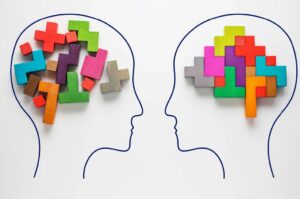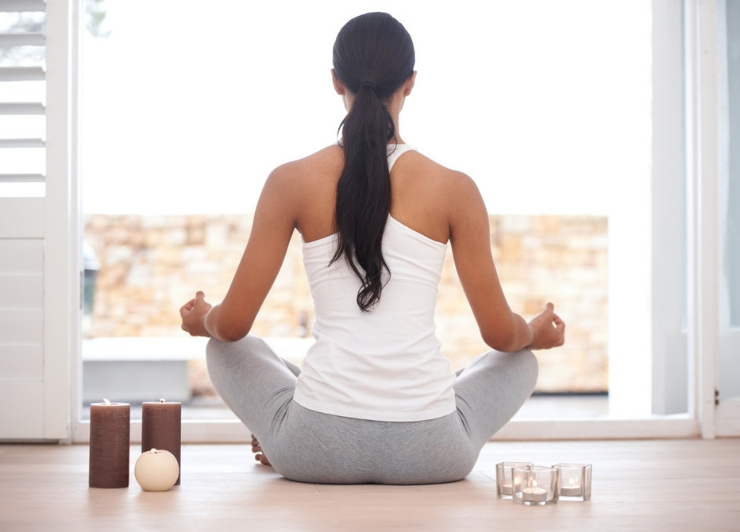How to be successful: authors Claire Dale and Patricia Peyton of the book Physical Intelligence, explain what physical intelligence is and how it can lead to success
Right at this moment, can you feel the pace of your heartbeat? Can you feel the movement of your breath entering and leaving your body?
Can you feel the shape of your spine? Can you capture the feeling of your current mood and what is creating that mood today?
Take a second or two to focus on each of these questions. As you do, you will likely become more aware, more actively present in your body.
Claire Dale and Patricia (Pat) Peyton are directors of Companies in Motion, offering Physical Intelligence coaching and training to top performers globally.
So, what is Physical Intelligence?
Our bodies are amazing examples of intelligent design and function, performing trillions of operations every second.
Over 400 neurotransmitters and hormones influence how we think, feel, speak and behave.
Physiology drives performance, and yet most of us experience physical reactions, emotions and thoughts without realising that we can transform them.
‘Physical Intelligence’ is the active management of our physiology – the ability to detect and strategically influence the balance of chemicals in our bodies and brains.
Over 400 neurotransmitters and hormones influence how we think, feel, speak and behave
While there are many chemical interactions that we can’t and wouldn’t want to influence, there are eight key chemicals that work in combination to explain helpful and unhelpful, constructive and unconstructive, responses to situations at home, at work and at play – chemicals that we can influence with Physical Intelligence techniques.
They all have a clear signature that announces their arrival or departure, and almost all behaviour can be described through the lens of this chemical framework and the interaction of these chemicals.
When the balance of those chemicals is right, we call it the ‘Winning Cocktail’.

How can we use and alter these chemicals to our advantage?
Combinations of these chemicals can make or break our success.
Cortisol rising above optimal levels minimises the positive aspects of many other chemicals. While adrenaline gets us going and acetylcholine enables us to recover, it is the relative levels of cortisol and DHEA that dictate how we get going and how we recover.
Too much cortisol drags down levels of the four ‘feel- good’ chemicals – dopamine, oxytocin, serotonin and testosterone – whereas DHEA boosts them.
we all have the capacity to achieve the chemical balance we want
For the eight chemicals in the ‘Winning Cocktail’, we all have the capacity to achieve the chemical balance we want, using Physical Intelligence techniques.
The more we understand the neuroscience that underpins our behaviour, the more we can exercise control over the balance of chemicals that we can influence, enabling us to achieve more, stress less and live more happily.
Here are the 8 important chemicals we can alter in our ‘Winning Cocktail’…
#1 Stimulate acetylcholine production
The signature feeling of acetylcholine is balance.
You’ve had a busy week, so you make it an early night and treat yourself to a long lie-in to start the weekend.
On Saturday, you realise that you’re breathing out in long sighs and feeling relief. This is your re-balancing and renewal system kicking in, driven by acetylcholine, responsible for energy renewal, recovery from pressure, learning and memory.
It brings the heart rate back to normal after intense activity and restores the balance of the organism as a whole in the process of homeostasis.
LIFE HACK: To stimulate acetylcholine production, take a hot bath with Epsom salts. Minerals such as magnesium and potassium (vital for renewal) will be absorbed through the skin, your energy will come flooding back and you’ll sleep better.

#2 Disperse feelings of adrenaline with movement
The signature feelings of adrenaline are fear or excitement.
We’ve all experienced that adrenaline rush. The primary functions of adrenaline are to increase heart rate and blood flow in survival situations and provide the muscles and brain with a burst of energy and strength to facilitate immediate action.
move, shift position, walk, shake out your legs and arms to disperse adrenaline
Adrenaline creates excitement, activation and speed but also can leave us feeling overly excited or nervous, making it difficult to communicate or think clearly.
Adrenaline is one of the two key operative chemicals of the sympathetic nervous system, the system that produces the fast action needed to respond to threats.
LIFE HACK: If you feel nerves building up, don’t just sit there: move, shift position, walk, shake out your legs and arms to disperse adrenaline.
#3 Don’t let high cortisol levels control you
The signature feeling of cortisol is anxiety.
If you worry or feel anxious, react impatiently or angrily, feel concerned about the future, often believe that others are to blame for things or think things are always your fault, that is high cortisol speaking.
Too many people are struggling to maintain their performance in today’s fast- paced, demanding environments, and cortisol is part of the problem.
Cortisol is critically important – its positive effects keep us alive, numbing pain so that we can fight even if injured.
However, if under pressure or in a ‘fight or flight’ environment for a sustained period, cortisol builds, leading to over-arousal and anxiety, where we underperform and make poor decisions.
LIFE HACK: If you lash out and regret it later or bottle it up and ruminate, either way, it’s only cortisol. Take a deep breath, acknowledge the pressure, but say, ‘NO’ to letting it control you.

#4 Breathing techniques will help you to produce DHEA and help you age more slowly
The signature feeling of DHEA is vitality.
Dehydroepiandrosterone is the high-performance chemical. It supports vitality, longevity, stamina, long-term memory, responsiveness, and cognitive, immune system, and heart–brain function.
DHEA and cortisol are two sides of a balancing scale. DHEA is a biomarker of age and naturally drops beyond the age of thirty, accelerated by stress and high cortisol, which leads to premature aging.
DHEA is a biomarker of age and naturally drops beyond the age of thirty
Unless we manage pressure well, when DHEA levels drop too quickly, the overall stability of our nervous and endocrine systems is compromised.
If we improve our capacity to perform under pressure without undue stress, we will age more slowly.
LIFE HACK: Synthetic DHEA is a banned substance for Olympic athletes, yet we can make it ourselves every day using paced breathing technique. Find a breath-pacer app – increase the amount of time per day you spend using regular-paced breathing.

#5 Enhance dopamine levels by rewarding yourself the right way
The signature feelings of dopamine are pleasure and need.
Have you ever felt disappointed when you missed out on tickets you wanted or didn’t get that promotion?
Those feelings are generated by a lack of expected reward – a lack of dopamine. Dopamine is the great motivator.
When we get it, we prioritise behaviour to make sure we keep getting it – staying up too late to binge watch your favorite television programme or eating an entire bag of crisps.
It can feel so good yet be so bad for us.
It is no accident that we enjoy the taste of food, water alleviates thirst and sex feels good
Dopamine provides a powerful chemical drive for many things concerned with survival. It is no accident that we enjoy the taste of food, water alleviates thirst and sex feels good.
Beyond that, what we are praised for when we are young sets up the mechanism for what we want to achieve later in life, which is why it is so important to reinforce positive behaviours in children.
Dopamine plays a huge part in goal orientation and engaging people in change.
LIFE HACK: STOP! Find something to enjoy and appreciate this very moment. You just created a ‘reward’ and, in doing so, have given yourself a natural dopamine boost.
#6 Build trust in relationships to boost oxytocin
The signature feeling of oxytocin is belonging.
Think of a time when you liked being somewhere, felt safe and included, and believed that people were looking out for you.
That’s oxytocin being released. Oxytocin levels fluctuate in relation to our perception of whether we are in the ‘in group’ or ‘out group’, whether we feel safe or threatened.
Oxytocin enables us to feel responsibility to others, to feel stronger together and facilitates social bonding.
xytocin levels fluctuate in relation to our perception of whether we are in the ‘in group’ or ‘out group’
Too much, and we may be overly dependent on relationships and lack the ability to make independent decisions; we may also want our group to be exclusive or elite. Too little, and we may feel isolated; we might not build professional relationships or know how to use our networks for support.
LIFE HACK: Oxytocin is released when we trust someone. We can boost it by by empathising with others to create harmony or manage conflict. Send a text right now to someone with whom you haven’t spoken in a while. Ask how they are doing, ask for their advice, or offer to help. You just boosted your oxytocin. You’ll feel even happier when they reply.

#7 Meditation will increase serotonin and make you happier
The signature feeling of serotonin is happiness.
Serotonin influences levels of happiness, status, satisfaction and well-being. We believe that we are enough, have enough. We feel naturally balanced and empowered and can take responsibility for our role in society.
Serotonin is important for the immune system and deep-seated confidence. High cortisol will drain serotonin levels until depression sets in.
Serotonin is important for the immune system and deep-seated confidence
Smiling and laughing releases serotonin in ourselves and others and is released when we eat bananas and high quality dark chocolate.
LIFE HACK: Any form of meditation boosts serotonin – mindfulness, a yoga breathing practice, Transcendental Meditation – or just sitting quietly and focusing on your breathing every day for ten minutes.
#8 Testosterone
The signature feelings of testosterone are power and control.
Testosterone (along with dopamine) drives your desire to achieve and compete. It enables risk tolerance and confidence and is vital for feeling empowered.
When you have thoughts like ‘I did it’ testosterone levels rise over a period of minutes.
However, beware of extremes: too much testosterone and we become overly confident, arrogant, don’t prepare well enough or work well on a team. Too little testosterone and we become risk-averse and avoid competitive situations.
LIFE HACK: We can adjust testosterone levels with good posture and resistance-based physical exercise. The next time you achieve something good, put your arms in the air like a winner and say ‘YES!’ Feel the elation!

Claire Dale and Patricia Peyton are the authors of new wellbeing book Physical Intelligence (Simon & Schuster), available now in ebook and hardback, priced at £14.99.
A well-known British dancer and choreographer, Claire founded the Claire Russ Ensemble, a contemporary dance company that performed across Europe for fifteen years. She is also senior communications tutor at RADA Business, specialising in embodied leadership training.
The marriage between art and science has long fascinated Claire and led her to research the neuroscience that supports Physical Intelligence and to curate and develop Physical Intelligence techniques.
Pat also has a background in dance, as well as in voice work and theatre but is best known for her 30 plus years working with Fortune 100 and FTSE 1000 organisations, helping individuals and teams improve their personal and commercial performance.
She is managing director of Sphere International, providing leadership and sales consulting and training across industries globally. She also sits on the board of trustees at Emerson College (dedicated to communication and the arts) in the US.
Both lifelong practitioners of Physical Intelligence, Claire and Pat, have created a Physical Intelligence curriculum that provides insight and techniques designed to help improve our strength (inner strength, confidence, resolve), flexibility (adaptability, creativity, innovation), resilience and endurance.
More Healthista Content:
6 celebrities you didn’t know have phobias
I wanted subtle lip fillers without the duck face – here’s what happened
Is bloating and flatulence ruining your sex life?
Heavy periods – the doctor’s guide to exactly what can be done
Like this article? Sign up to our newsletter to get more articles like this delivered straight to your inbox.






















































